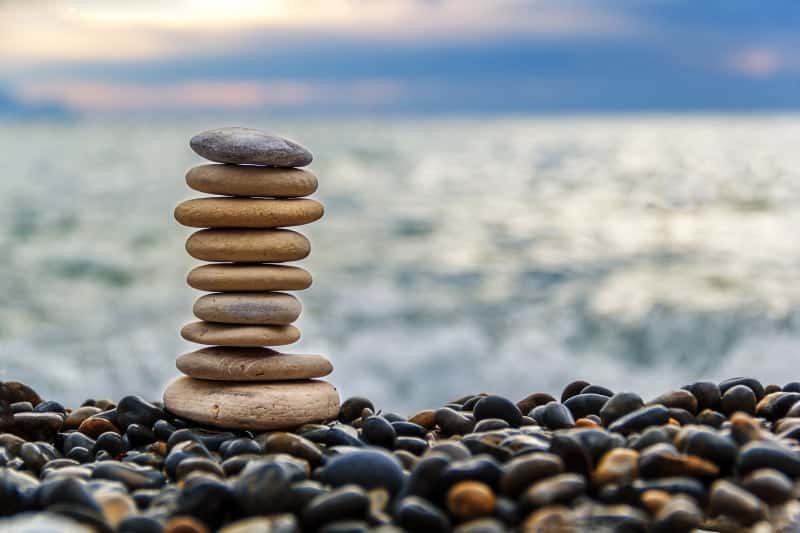Background: You may or may not know that I am trained in Medical Acupuncture, as well as Functional Medicine. Acupuncture is actually what got me started down the pathway to finding ways to heal and help without relying 100% on medications and surgeries. Many years ago, I became an acupuncture patient for the first time in search of a non-medication solution to insomnia. Of course it worked wonderfully, and I went for acupuncture treatments regularly for many months to resolve insomnia, and some stomach issues as well. Seeing how well acupuncture worked for myself made me want to seek out my own training so I could learn to help other is this way, as I was seeing an increasing need for alternative treatment options. Many patients I encountered had already had surgeries and/or were taking medications and still did not have symptom resolution, or they were trying to avoid having to take medications or having surgery. Acupuncture eventually lead me to Functional Medicine, as both use whole body approaches to health. My thirst for knowledge on how to heal the body in the most natural way possible lead me to train with Institute for Functional Medicine. Currently, I use acupuncture as one treatment modality in my Functional Medicine practice and find the combination of the two to be quite effective.
Acupuncture: What is it?
Acupuncture is part of the much larger system of healing called traditional Chinese medicine that uses small needles in precise locations to help treat symptoms and disease. Acupuncture promotes natural healing and improved function in the body. The classical Chinese explanation is that channels of energy called meridians run in through the body and over its surface. A key concept is qi, a vital energy that circulates throughout the body in 14 meridian channels. When the flow of qi becomes obstructed, pain or illness occurs. Putting needles at specific acupuncture points along the meridian seeks to ‘‘open the channel’’ and promote the healthy flow of qi and, with that, restore health.
The modern scientific explanation is that acupuncture stimulates the nervous system to release chemicals in the muscles, spinal cord, and brain (which can be seen on functional MRI). These chemicals then trigger the release of other chemicals or hormones, which in turn influence the body’s own regulating systems and healing. Acupuncture encourages natural healing and improved function in the body. It is used to promote health and wellbeing, prevent illness, and treat medical conditions.
History:
Historians debate about when acupuncture was developed, though some think it originated over 5000 years ago. The earliest source of systematic documentation of acupuncture theory is the Huang Di Nei Jing (the Inner Classic of the Yellow Emperor), which dates back to the Han dynasty in the second century BC. Like many medical systems, acupuncture theory and practice have evolved over the years in China and in the West. It is has been embraced by the US military.
What Conditions Does Medical Acupuncture Treat?
Acupuncture can be useful in a variety of acute and chronic conditions, and is particularly useful in helping resolve physical problems due to stress and emotional conditions. The World Health Organization recognizes the use of acupuncture in treating many medical conditions including:
Respiratory Diseases
• Acute sinusitis
• Acute rhinitis
• Common cold
• Acute tonsillitis
• Acute bronchitis
• Bronchial asthma
Eye Disorders
• Acute conjunctivitis
• Eye Pain
• Central retinitis
Disorders of the Mouth Cavity
• Toothache
• Pain after tooth extraction
• Gingivitis
• Pharyngitis
Orthopedic Disorders
• Tennis elbow
• Sciatica
• Low back pain
• Rheumatoid arthritis
• Other arthritis
Gastrointestinal Disorders
• Spasm of the esophagus
• Hiccups
• Gastroparesis
• Acute and chronic gastritis
• Gastric hyperacidity
• Chronic duodenal ulcer
• Acute and chronic colitis
• Acute bacterial dysentery
• Constipation
• Diarrhea
• Paralytic ileus
Neurologic Disorders
• Headache
• Migraine
• Trigeminal neuralgia
• Facial paralysis
• Peripheral neuropathy
• Meniere’s syndrome
• Neurogenic bladder dysfunction
• Intercostal neuralgia
What is an Acupuncture Treatment Like?
Small sterile needles are inserted at precise acupuncture points, one at a time. The needles are very thin and solid, and made of stainless steel with a smooth point. The number of needles used will vary depending on the condition you are being treated for. Everyone experiences acupuncture differently, however most patients feel only minimal or no pain as the needles are inserted, then no pain once the needles are in place. The risk of bleeding or bruising is much less than with other needles that are hollow and sharp, such as the kind used for drawing blood or starting an IV. The needles will stay in place anywhere from a few minutes, up to an hour, depending on your current condition and what you are being treated for. In addition, some of the needles placed may be hooked up to electrical stimulation, if indicated, to enhance the flow of energy.
How Do I Prepare for an Acupuncture Treatment?
Come dressed in comfortable clothes, preferably in layers, as you may be asked to remove items in order to facilitate your treatment. Ideally, avoid eating a large meal, drinking alcohol, and engaging in intense exercise or sex directly before or after your treatment, so plan accordingly. The best thing you can do after your treatment is to rest, relax, and let your treatment settle in. You may feel calmer, or even euphoric after an acupuncture treatment, so make sure you give yourself enough time to acclimate before driving home.
Still Not Sure About Acupuncture?
In case you aren’t convinced by the large number of studies proving acupuncture to be effective for many medical conditions in humans, consider that it is widely used in veterinary medicine. This means you don’t have to “believe” in it for it to actually work, as animals lack the understanding of what is happening to them during a treatment. I can tell you first hand that this is true, as I have had 2 of my own dogs treated with acupuncture. Not only did acupuncture help what they were being treated for, the dogs actually liked it! How do I know? They were relatively still during the process (i.e. not trying to run away or avoid needles), and sleepy afterwards, just as humans usually are. There is only one way to find out if acupuncture is for you or not, and that is to give it a try! If you would like more information on medical acupuncture, visit www.medicalacupuncture .org, and see the article a detailed explanation from their website.









